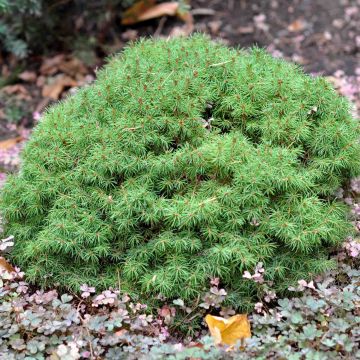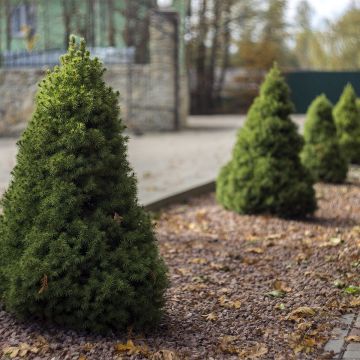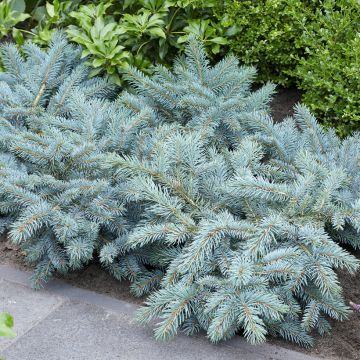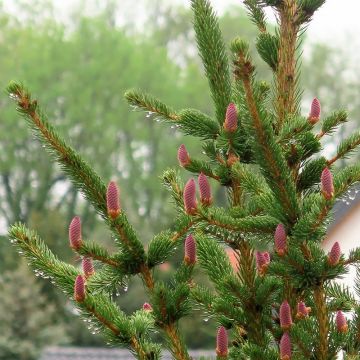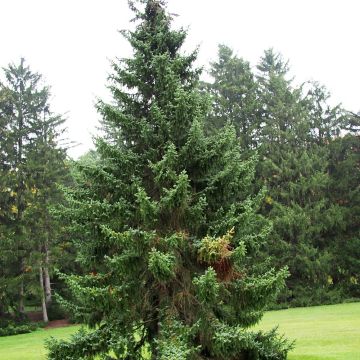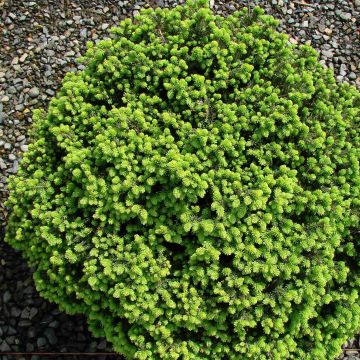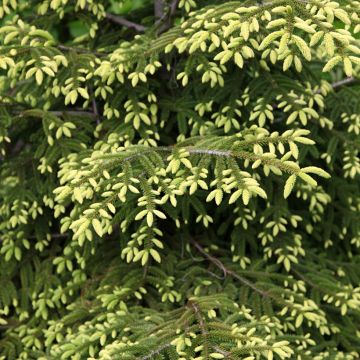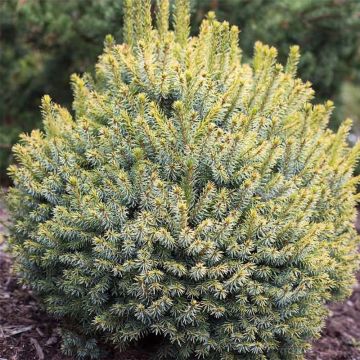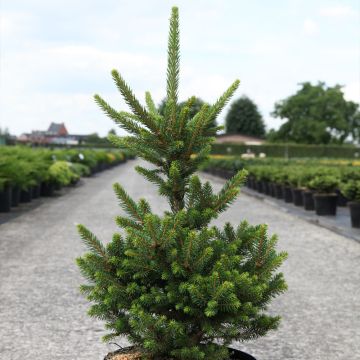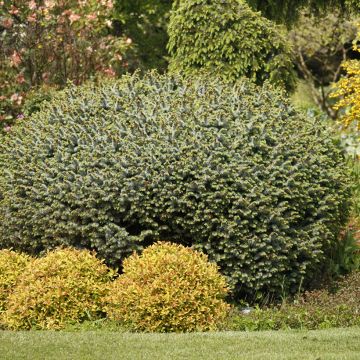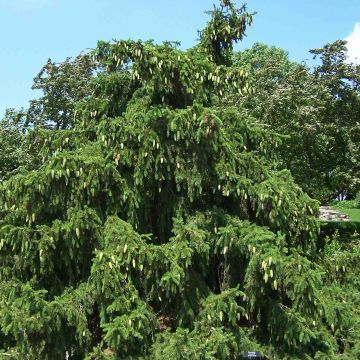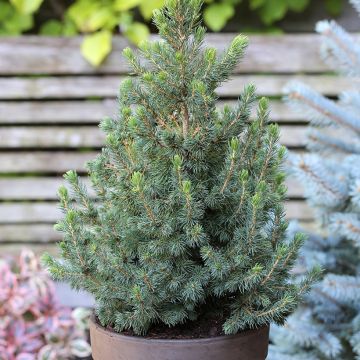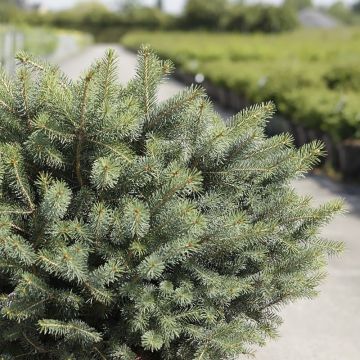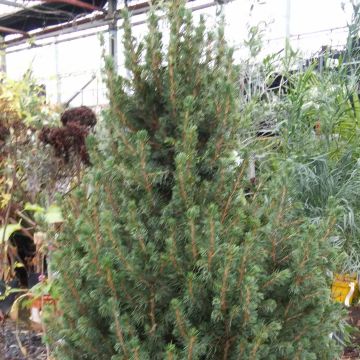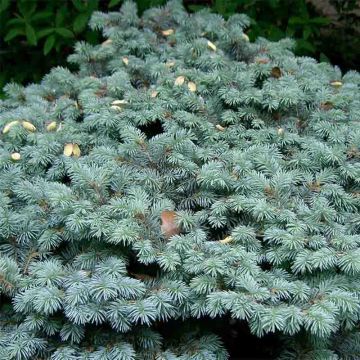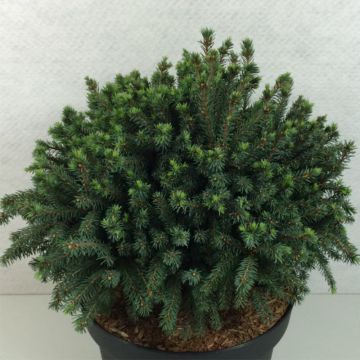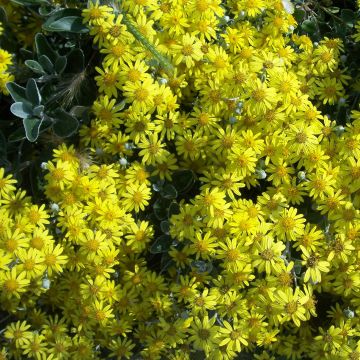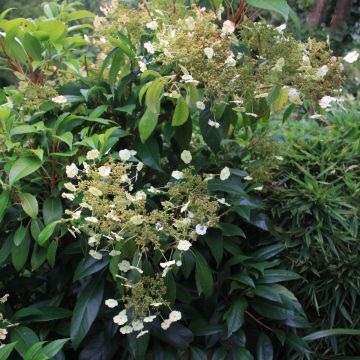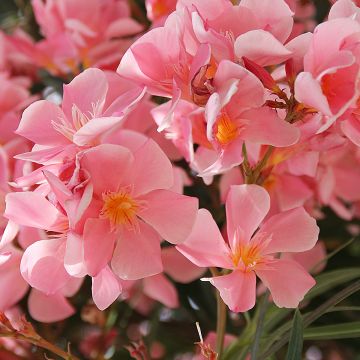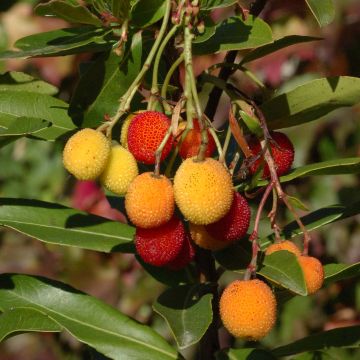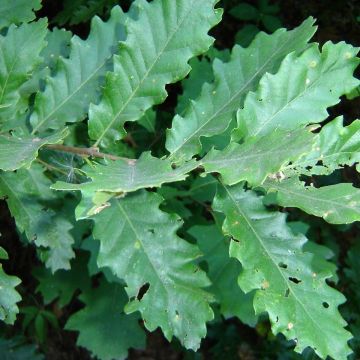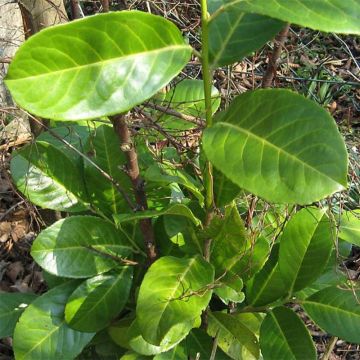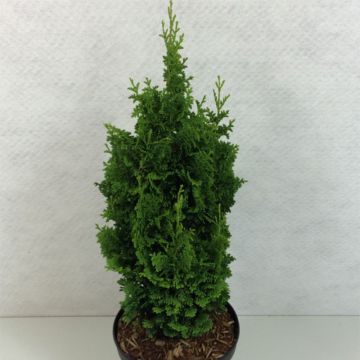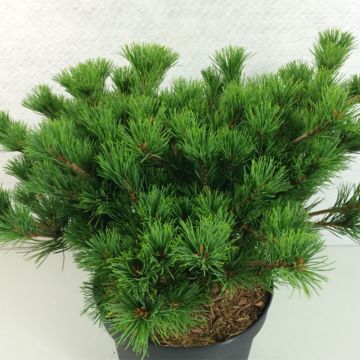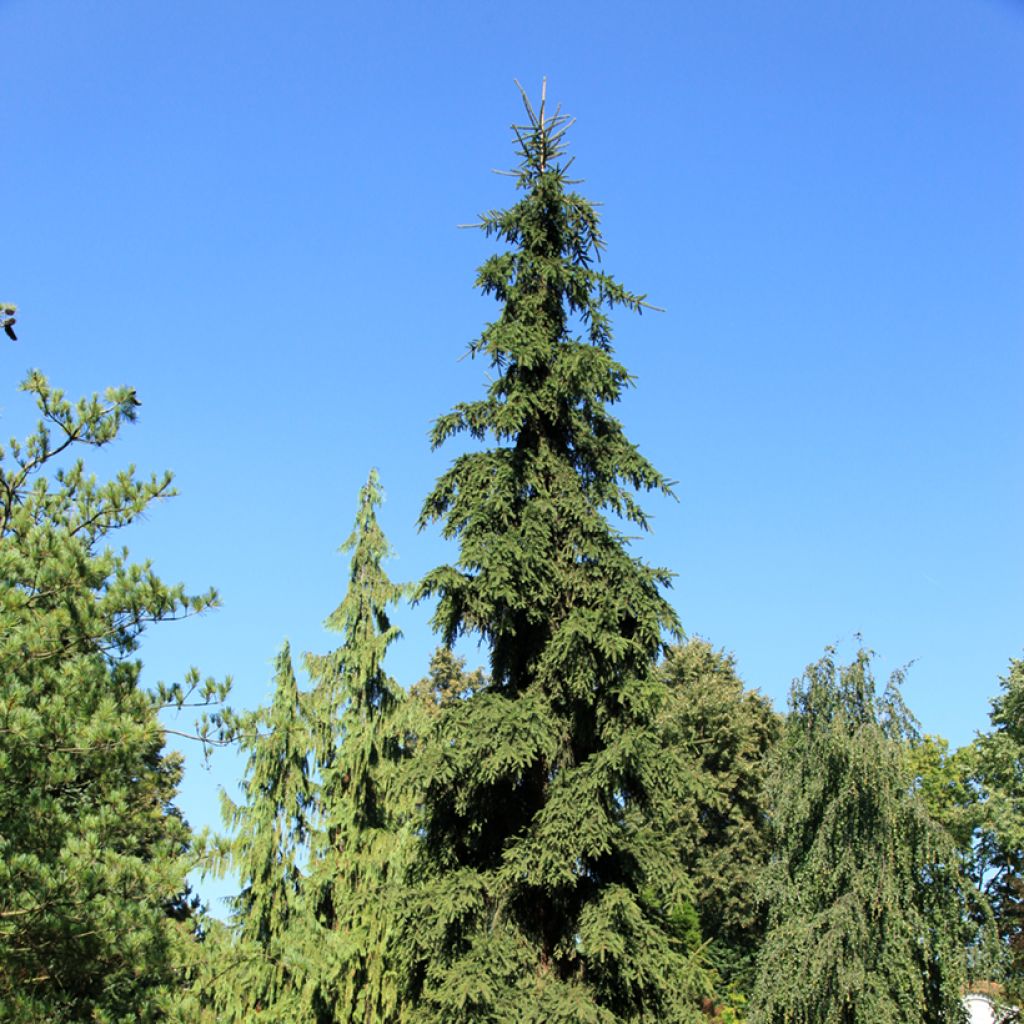

Picea abies Rothenhaus - Norway Spruce
Picea abies Rothenhaus - Norway Spruce
Picea abies Rothenhaus
Norway Spruce, European Spruce
Special offer!
Receive a €20 voucher for any order over €90 (excluding delivery costs, credit notes, and plastic-free options)!
1- Add your favorite plants to your cart.
2- Once you have reached €90, confirm your order (you can even choose the delivery date!).
3- As soon as your order is shipped, you will receive an email containing your voucher code, valid for 3 months (90 days).
Your voucher is unique and can only be used once, for any order with a minimum value of €20, excluding delivery costs.
Can be combined with other current offers, non-divisible and non-refundable.
Why not try an alternative variety in stock?
View all →This plant carries a 24 months recovery warranty
More information
We guarantee the quality of our plants for a full growing cycle, and will replace at our expense any plant that fails to recover under normal climatic and planting conditions.
Would this plant suit my garden?
Set up your Plantfit profile →
Description
The Picea abies 'Rothenhausii', also marketed under the name 'Rothenhaus', is a variety of common spruce sought after for its unique weeping habit. This elegant conifer resembles a cascade and reaches a classic height, but remains very narrow, making it easier to accommodate in many gardens. Descending from an upright trunk, branches and twigs rush towards the ground to form a skirt that hides its stump. Its dark green needle-like foliage is a beautiful adornment even in winter.
The 'Rothenhausii Spruce' is said to have been discovered in 1938 in a forest near Rothenhaus Castle near Eisenburg in the Czech Republic. The species type, Picea abies, also known as Norway Spruce or Red Spruce, is an evergreen conifer belonging to the pine family. It is native to Northern Europe, specifically Scandinavia. In its natural environment, it has a typically conical and pyramidal shape and can reach a height of 30m. This plant is traditionally used as a Christmas tree in Europe. It prefers well-drained and cool soils and is not afraid of very low temperatures.
The 'Rothenhausii' cultivar forms a tree 5 to 6m tall and 1m wide after 10 years. Its height growth is around 50cm per year initially, and then slows down over the years. Ultimately, it can reach a height of 10 to 15m and a width of about 2.50m. This tree develops a very straight and strong trunk that extends to its top: it does not need staking. The trunk branches out into heavy branches arranged in a spiral and almost completely hidden by the leafy twigs. Sometimes, certain branches located at the top of the tree gracefully rise towards the sky. The young spring shoots of this spruce are quite light green, and then its foliage darkens and becomes bluish dark green. Its small evergreen leaves are rigid needles, shorter than those of the species type, very prickly, arranged all around the twigs, in a brush-like manner. The root system of spruces is shallow and running, which makes them difficult to transplant when they are mature.
The Picea abies 'Rothenhausii' is used as a specimen tree. Its beautiful silhouette will make a statement when planted alone on a lawn, but also near a pool, as it blends well with geometric lines and masonry structures. The true graphic qualities of conifers naturally stand out in the design of a contemporary garden, which emphasises shapes, silhouettes, and textures. They go well with mahonias, heathers, or tousled grasses with a very complementary temperament. The key is to play with volumes and colours.
Report an error about the product description
Plant habit
Foliage
Botanical data
Picea
abies
Rothenhaus
Pinaceae
Norway Spruce, European Spruce
Cultivar or hybrid
Other Picea
View all →Planting and care
The Picea abies 'Rothenhaus' should be planted from September to November and from February to June in deep, well-drained, light, neutral to occasionally dry soil. Choose a very sunny or semi-shaded location, sheltered from prevailing winds. Soak the root balls well before planting. Add soil improver at planting and water generously in the first few years, especially during prolonged drought. Apply a special conifer fertiliser every year in April and cultivate the soil in summer. This extremely hardy conifer, however, dislikes heavy soils that are waterlogged in winter. It does not tolerate heatwaves and cannot withstand Mediterranean summers.
Pruning is not necessary, on the contrary, as this plant expresses its full potential when left to grow freely.
Planting period
Intended location
Care
This item has not been reviewed yet - be the first to leave a review about it.
Similar products
Haven't found what you were looking for?
Hardiness is the lowest winter temperature a plant can endure without suffering serious damage or even dying. However, hardiness is affected by location (a sheltered area, such as a patio), protection (winter cover) and soil type (hardiness is improved by well-drained soil).

Photo Sharing Terms & Conditions
In order to encourage gardeners to interact and share their experiences, Promesse de fleurs offers various media enabling content to be uploaded onto its Site - in particular via the ‘Photo sharing’ module.
The User agrees to refrain from:
- Posting any content that is illegal, prejudicial, insulting, racist, inciteful to hatred, revisionist, contrary to public decency, that infringes on privacy or on the privacy rights of third parties, in particular the publicity rights of persons and goods, intellectual property rights, or the right to privacy.
- Submitting content on behalf of a third party;
- Impersonate the identity of a third party and/or publish any personal information about a third party;
In general, the User undertakes to refrain from any unethical behaviour.
All Content (in particular text, comments, files, images, photos, videos, creative works, etc.), which may be subject to property or intellectual property rights, image or other private rights, shall remain the property of the User, subject to the limited rights granted by the terms of the licence granted by Promesse de fleurs as stated below. Users are at liberty to publish or not to publish such Content on the Site, notably via the ‘Photo Sharing’ facility, and accept that this Content shall be made public and freely accessible, notably on the Internet.
Users further acknowledge, undertake to have ,and guarantee that they hold all necessary rights and permissions to publish such material on the Site, in particular with regard to the legislation in force pertaining to any privacy, property, intellectual property, image, or contractual rights, or rights of any other nature. By publishing such Content on the Site, Users acknowledge accepting full liability as publishers of the Content within the meaning of the law, and grant Promesse de fleurs, free of charge, an inclusive, worldwide licence for the said Content for the entire duration of its publication, including all reproduction, representation, up/downloading, displaying, performing, transmission, and storage rights.
Users also grant permission for their name to be linked to the Content and accept that this link may not always be made available.
By engaging in posting material, Users consent to their Content becoming automatically accessible on the Internet, in particular on other sites and/or blogs and/or web pages of the Promesse de fleurs site, including in particular social pages and the Promesse de fleurs catalogue.
Users may secure the removal of entrusted content free of charge by issuing a simple request via our contact form.
The flowering period indicated on our website applies to countries and regions located in USDA zone 8 (France, the United Kingdom, Ireland, the Netherlands, etc.)
It will vary according to where you live:
- In zones 9 to 10 (Italy, Spain, Greece, etc.), flowering will occur about 2 to 4 weeks earlier.
- In zones 6 to 7 (Germany, Poland, Slovenia, and lower mountainous regions), flowering will be delayed by 2 to 3 weeks.
- In zone 5 (Central Europe, Scandinavia), blooming will be delayed by 3 to 5 weeks.
In temperate climates, pruning of spring-flowering shrubs (forsythia, spireas, etc.) should be done just after flowering.
Pruning of summer-flowering shrubs (Indian Lilac, Perovskia, etc.) can be done in winter or spring.
In cold regions as well as with frost-sensitive plants, avoid pruning too early when severe frosts may still occur.
The planting period indicated on our website applies to countries and regions located in USDA zone 8 (France, United Kingdom, Ireland, Netherlands).
It will vary according to where you live:
- In Mediterranean zones (Marseille, Madrid, Milan, etc.), autumn and winter are the best planting periods.
- In continental zones (Strasbourg, Munich, Vienna, etc.), delay planting by 2 to 3 weeks in spring and bring it forward by 2 to 4 weeks in autumn.
- In mountainous regions (the Alps, Pyrenees, Carpathians, etc.), it is best to plant in late spring (May-June) or late summer (August-September).
The harvesting period indicated on our website applies to countries and regions in USDA zone 8 (France, England, Ireland, the Netherlands).
In colder areas (Scandinavia, Poland, Austria...) fruit and vegetable harvests are likely to be delayed by 3-4 weeks.
In warmer areas (Italy, Spain, Greece, etc.), harvesting will probably take place earlier, depending on weather conditions.
The sowing periods indicated on our website apply to countries and regions within USDA Zone 8 (France, UK, Ireland, Netherlands).
In colder areas (Scandinavia, Poland, Austria...), delay any outdoor sowing by 3-4 weeks, or sow under glass.
In warmer climes (Italy, Spain, Greece, etc.), bring outdoor sowing forward by a few weeks.






























